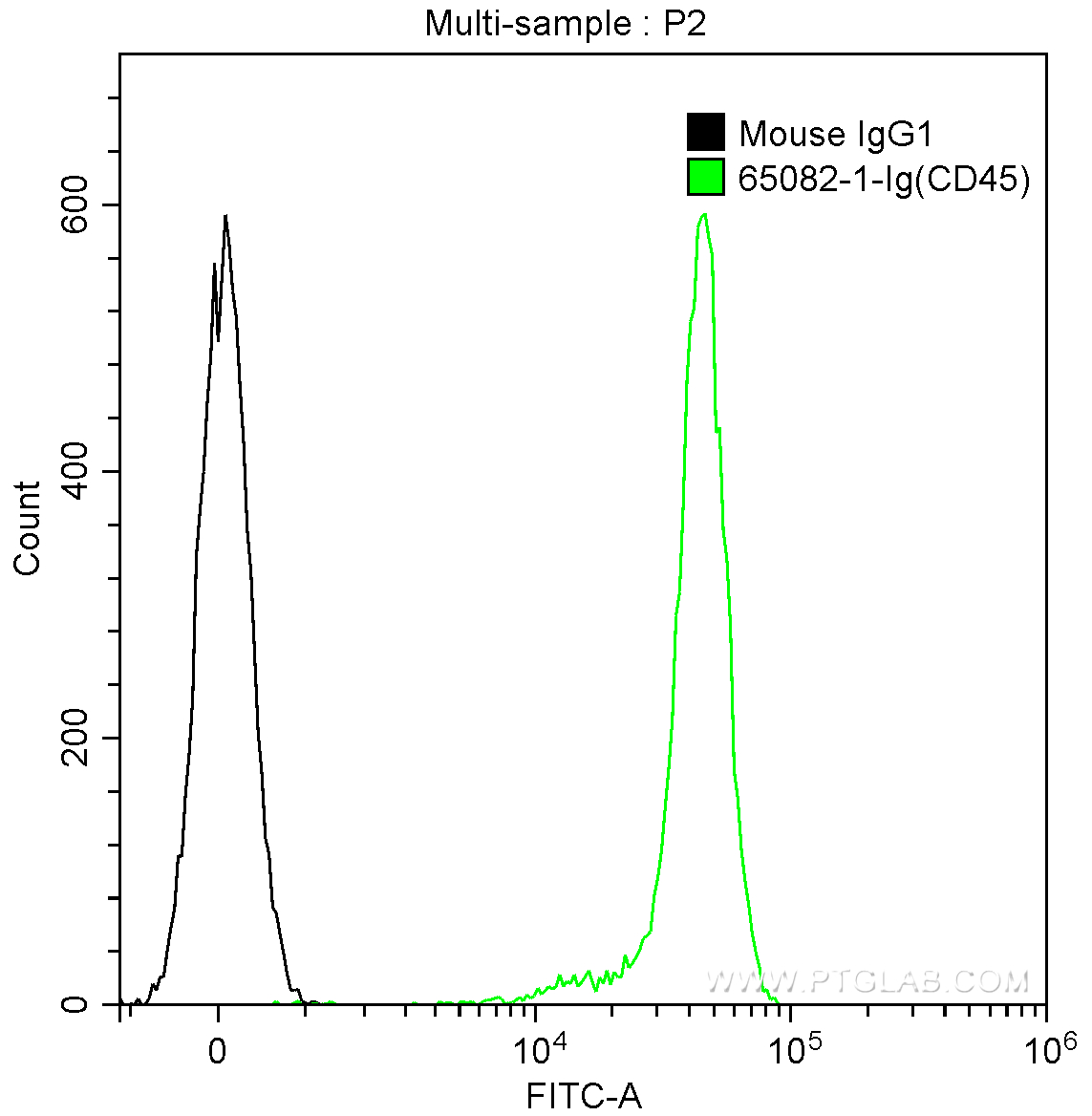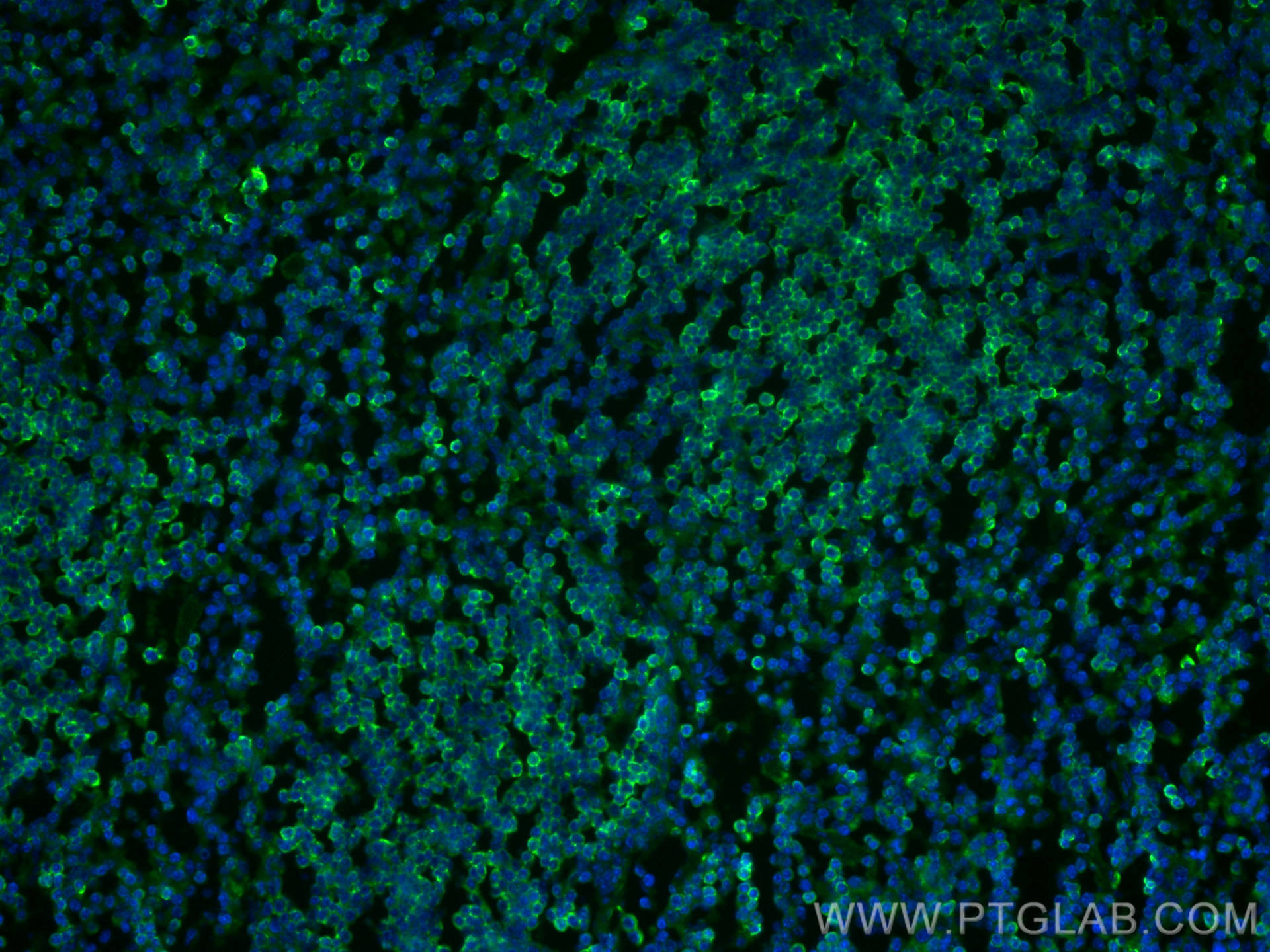验证数据展示
经过测试的应用
| Positive IF-Fro detected in | mouse spleen tissue |
| Positive FC detected in | human peripheral blood lymphocytes |
推荐稀释比
| 应用 | 推荐稀释比 |
|---|---|
| Immunofluorescence (IF)-FRO | IF-FRO : 1:125-1:500 |
| This reagent has been tested for flow cytometric analysis. It is recommended that this reagent should be titrated in each testing system to obtain optimal results. | |
| Sample-dependent, Check data in validation data gallery. | |
产品信息
65082-1-Ig targets CD45 in IF-Fro, FC applications and shows reactivity with human samples.
| 经测试应用 | IF-Fro, FC Application Description |
| 经测试反应性 | human |
| 免疫原 | Human PBMC 种属同源性预测 |
| 宿主/亚型 | Mouse / IgG1, kappa |
| 抗体类别 | Monoclonal |
| 产品类型 | Antibody |
| 全称 | protein tyrosine phosphatase, receptor type, C |
| 别名 | L CA, GP180, EC:3.1.3.48, CD45R, B220 |
| GenBank蛋白编号 | BC014239 |
| 基因名称 | CD45 |
| Gene ID (NCBI) | 5788 |
| ENSEMBL Gene ID | ENSG00000081237 |
| RRID | AB_2918385 |
| 偶联类型 | Unconjugated |
| 形式 | Liquid |
| 纯化方式 | Affinity purification |
| 储存缓冲液 | PBS with 0.09% sodium azide , pH 7.3 |
| 储存条件 | Store at 2-8°C. Stable for one year after shipment. |
背景介绍
CD45, also known as protein tyrosine phosphatase, receptor type C, is a type I transmembrane protein expressed on the surface of all haematopoietic cells with the exception of erythrocytes and platelets (PMID: 3489673; 28615666). CD45 is a pan-haematopoietic cell marker and has been shown to be essential for T- and B-cell activation and signalling (PMID: 9429890; 16378097).
实验方案
| Product Specific Protocols | |
|---|---|
| IF protocol for CD45 antibody 65082-1-Ig | Download protocol |
| FC protocol for CD45 antibody 65082-1-Ig | Download protocol |
| Standard Protocols | |
|---|---|
| Click here to view our Standard Protocols |

